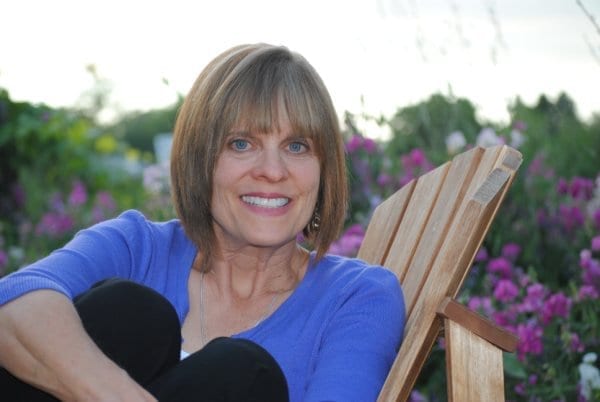
Plan-B Theatre Company’s popular Script-in-Hand series is back for the holiday season. MARRY CHRISTMAS, a documentary theatre piece, deals with the actions and reactions of the 17 days when same-sex marriage became legal in Utah after U.S. District Court Judge Robert Shelby ruled that Utah’s Amendment 3 was unconstitutional. Playwright Elaine Jarvik tackled the story at the behest of Plan-B Artistic Director Jerry Rapier as part of the company’s mission to produce socially conscious theatre. Jarvik is a former staff writer at the Deseret News and has had her work produced by Pygmalion Theatre Company (THE COMING ICE AGE), Salt Lake Acting Company (A MAN ENTERS and the upcoming TWO STORIES), Meat & Potato Theatre Company, and previous SLAM!’s with Plan-B. Here Jarvik shares some thoughts about creating this piece and working with Plan-B.
You’ve been a journalist in Salt Lake for some time. What attracted you to theatre and transitioning into playwriting?
JARVIK: As a journalist, I always liked language as much as news. And, given the choice, I preferred writing the kind of stories I like to read, stories revealed through scenes that hopefully add up to something illuminating and maybe even surprising. In other words, kind of like a play. That said, I didn’t really think about that 12 years ago when I began to write my first play, which was in fact a musical, which was in fact not very good. But I discovered I loved the challenge of telling a story through dialogue alone. The trick, of course, was that in journalism I had relied on the people I interviewed to say the clever, insightful things, and now I had to rely on myself.
MARRY CHRISTMAS is based on interviews and reactions to a real event. How do you approach dramatizing something that has been so widely written about journalistically?
JARVIK: Good question — because we definitely already know the plot, and have read or heard about many of the stories of the couples who got married during those 17 days. But journalism, as they say, is just the first draft of history, and is often told piecemeal, with time and space constraints. I had the luxury of being able to let the story unfold at a more leisurely and yet more theatrical pace. Unlike most plays, though, I’ve had to add and subtract material as the news has changed over the past few months.
Were you at all hesitant to approach something that is considered a controversial topic?
JARVIK: This project was conceived by Plan-B producing director Jerry Rapier as a way to celebrate those 17 days and their aftermath. It’s also a fundraiser for Restore Our Humanity, so the audience that shows up probably won’t think of the topic as controversial. It’s not a play that engages in a debate about the definitions of marriage.
How would you classify your writing style? What kind of ideas become plays for you?
JARVIK: I don’t know if I have a style. But I do always try to approach even serious subject matter with some humor, and in the case of “Marry Christmas” the humor came from the couples I interviewed. For plays I conceive of myself, I’m drawn to exploring ideas that I’ve struggled with: loss, change, fear, fear of change and loss. If something keeps me awake at night, it probably will end up as a script.
You’ve had several pieces produced by local companies. What is it like to see your work produced?
JARVIK: Terrifying (I always want to run back and rewrite everything). And humbling (often directors and actors get my plays better than I do). And of course thrilling. . . . And did I mention terrifying?
What is it like to work with Plan-B?
JARVIK: I love Jerry’s enthusiasm for every project he works with! He makes me want to add exclamation marks!
What has been your favorite part about this process?
JARVIK: I love to write — even when I am, in the process, whining and pulling my hair out. So I loved the challenge of trying to turn the interviews into something theatrical, of marrying journalism and playwriting. And I loved talking with these couples, who were so generous and open. I hope I’ve done their stories justice.
In light of the recent circuit rulings overturning bans on same-sex marriage and the Supreme Court’s choice not to hear the case at this time, do you think there is material enough to expand MARRY CHRISTMAS?
JARVIK: Rather than expand MARRY CHRISTMAS, maybe someone would like to write a play about a fictional family caught up in this life-changing time.
How do you think the theatre scene in Utah has changed since you joined it?
JARVIK: In the past dozen years, local theatres —led by the efforts of the Salt Lake Acting Company and Plan-B — have become real champions of local playwrights. They’ve not only been willing to produce our work, but have provided us with workshops and writing labs to help us improve our craft. I am grateful to them every day I sit down at my laptop to try to write a story worth telling.
What do you think Utah theatre needs most?
JARVIK: Younger audiences.
[box type=”shadow”]A pre-paid wait list will form 30 minutes before each performance in the Rose Wagner box office – you must be in the box office, in person, at that time in order to get on the wait list, which is first-come, first-served. If you arrive before that time and leave for any reason you forfeit your place in line. Those we are unable to seat will receive an immediate refund. The theatre will accommodate whomever they can. Additionally, tickets are still available for the December 19-21 performances of CHRISTMAS WITH MISFITS.[/box]

